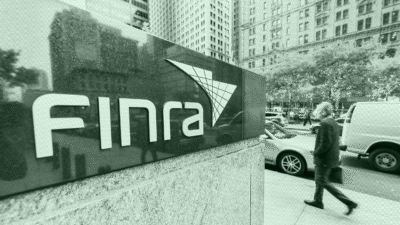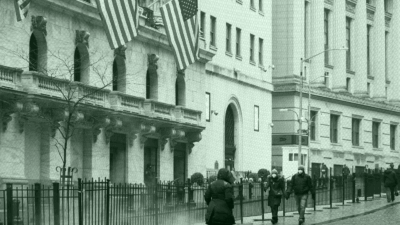Where Are Cash Sweep Lawsuits Now?
Lawsuits have been filed against a laundry list of brokerages, including Wells Fargo, LPL and others.

Sign up for market insights, wealth management practice essentials and industry updates.
Retail investors are largely still waiting to cash in on class-action lawsuits over cash sweeps.
Wells Fargo and LPL narrowly escaped allegations they breached fiduciary duties in separate lawsuits over cash sweeps in recent weeks. A federal court in California dismissed claims of breach of contract, breach of fiduciary duty for non-advisory clients and unjust enrichment in the Wells case last month, although others allegations remain. Legal claims are also forging ahead against a laundry list of other brokerages, including Raymond James, Charles Schwab, Ameriprise and others, according to the law firm Simmons Hanly Conroy. The litigation is forcing the big brokerages to rethink how they position — and monetize — clients’ cash.
“Increasingly, RIAs have been using these brokered cash sweep products without understanding their inherent risks and conflicts,” said Gary Zimmerman, founder of the cash management platform Max, adding that brokerages often offer “dramatically worse” rates than comparable options. “Perhaps equally important, these conflicts of interest erode client trust,” he told Advisor Upside.
Sweeping Decisions
Cash sweeps programs, known in earnings reports as “net interest income,” have been around for decades, but a rash of high-profile lawsuits and investigations over the practice took the industry by storm last year. The Securities and Exchange Commission closed an investigation into Morgan Stanley’s program in May, without levying any enforcement actions, according to Reuters. Revenues in those accounts grew exponentially to over $8 billion in 2023 alone, according to an unrelated suit.
Wirehouse frenemies Merrill Lynch and two Wells Fargo advisory firms weren’t quite as lucky, with the SEC levying fines in January:
- Wells Fargo Clearing Services agreed to pay a civil penalty of $28 million.
- Wells Fargo’s FiNet paid a civil penalty of $7 million.
- Merrill Lynch agreed to pay a civil penalty of $25 million.
Under the Rug. The cash sweep programs automatically move clients’ uninvested cash into an interest-bearing account, or a money market fund, unless clients know about them and choose to opt out. One study found the sweeps cost investors upward of $500 million over a six-year period, and a separate report found firms can earn profits 10 times what they pay to customers. While a certain amount of cash should be kept in brokerage accounts to help pay for fees and trading, research shows that clients typically hold the cash outside of the portfolio in bank accounts, Zimmerman said.
“That’s smart, since holding cash directly in your own bank accounts is fundamentally safer than using a brokered cash sweep program,” he said.











